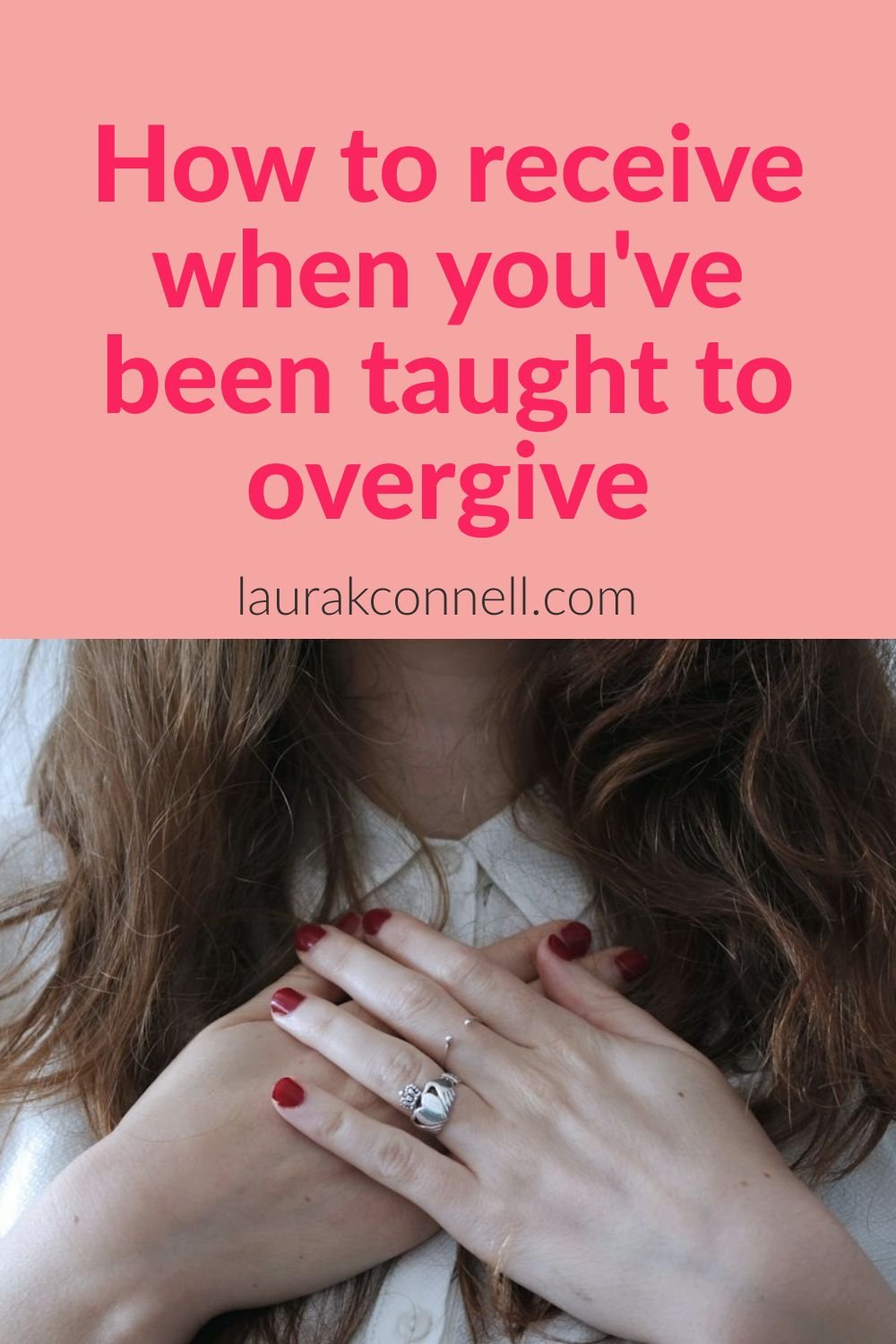How to receive when you’ve been taught to overgive
They say it feels better to give than to receive, but is that really true? What if you feel resentful about giving; does that make you a bad person?
Another saying describes things more accurately: “You can’t pour from an empty cup.” In other words, you have to fill yourself up before you can be good for others.
So, to answer your question, resentment about giving is not a sign of bad character. It often means that you’re giving too much and not allowing yourself to receive.
When you’re out of balance this way, your well runs dry. And yet you keep trying to quench other peoples’ thirst.
It’s easy to say you should pay attention to your own needs before attending to others’. You might already know that, but find it impossible to receive either from yourself or others.
That’s likely because you haven’t been taught that your needs matter and knowing how to fulfil them is essential to your self-worth. You were taught to focus on the needs of others and that’s a hard habit to break.
In fact, it’s a conditioning that’s gone on since childhood. That’s when you learned to pay attention to what others wanted from you in order to survive.
And survival when you’re a child means avoiding rejection and abandonment. So, if your father wants quiet in the house or he’ll blow up, that’s what you’ll give him.
In general, you’d suppress your need for attention, emotional support, or even basic needs like food and clothing to stay small. Or you might have been entertaining or super helpful to win love.
How you learned not to receive
Whatever you did that prioritized other peoples’ needs over your own made it harder for you to receive. When you suppressed your needs as a survival mechanism, to receive would feel dangerous even as an adult.
Rather than sitting back to let someone else pick up the slack, you jump in to save the day. That’s a symptom of enabling and stems from a fear that everything will fall apart if you don’t take care of it.
You may have trouble letting people face the consequences of their actions or inactions. You may also fear they won’t like you if you don’t take care of things like you always do.
And not being liked can feel like death to you because, guess what? In childhood being rejected by those you depended on was life-threatening.
The child inside you doesn’t realize you’ve grown up now and can survive easily on your own. And that everyone is not as unreasonable as your parents and won’t cut you off if you don’t do what they want.
You do for people even when they don’t ask because you were primed to anticipate other peoples’ needs in order to stay safe. It’s too late when the bomb goes off; you’ve got to suss it out and defuse it ahead of time.
When you grow up feeling you have to act a certain way to be acceptable, you lose self worth. You feel like your right to exist depends on what you give to others.
Feeling not good enough
So, the inability to receive is often linked to a feeling of not being good enough. Your value is tied to how other people feel about you so giving can be a way of getting in their good books.
You have trouble believing people will like or accept you if you’re not giving them something. That’s because you grew up with the false belief that you had to be something other than yourself to win love.
The truth is there was nothing you could do to win love from unloving people. You were surviving the only way a child knows how.
Now you’re an adult and learning to receive is a part of healing. So, where to start?
Receive a compliment
Over givers may struggle to even receive a compliment. A simple ‘thank you’ feels impossible and you take the opportunity to undermine yourself instead.
To receive a compliment might feel like taking away from someone. So, you pay them back with a compliment of your own.
Practice receiving these well wishes with gratitude. No need to add commentary or return the favor.
Tune into your own needs
Pay attention to what’s going on in your body. Do you need to take a deep breath or give yourself a rest?
Often when we overgive, we disconnect from ourselves. Simply observing your somatic needs and serving them can help fill your proverbial cup.
Believe that you are worthy
You matter simply because you exist, not because of anything you do for others. When you begin to care for your own needs, you improve your self-worth.
Giving to yourself can be the first step to learning how to receive.
Looking for more on healing from family dysfunction? Watch my free masterclass: The 4-step process for healing your childhood trauma where you’ll learn the secrets to healing that mainstream self-help experts don’t tell you.


